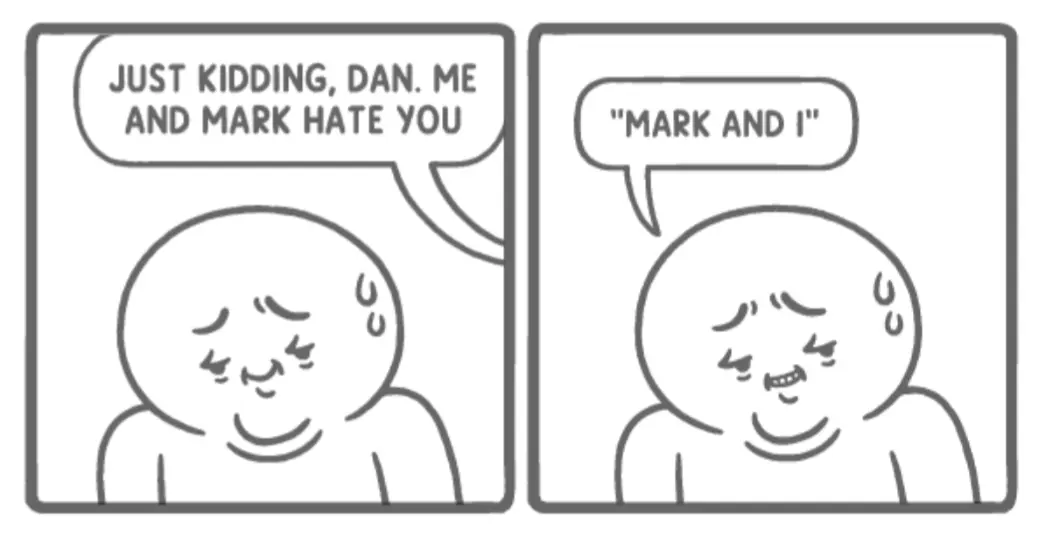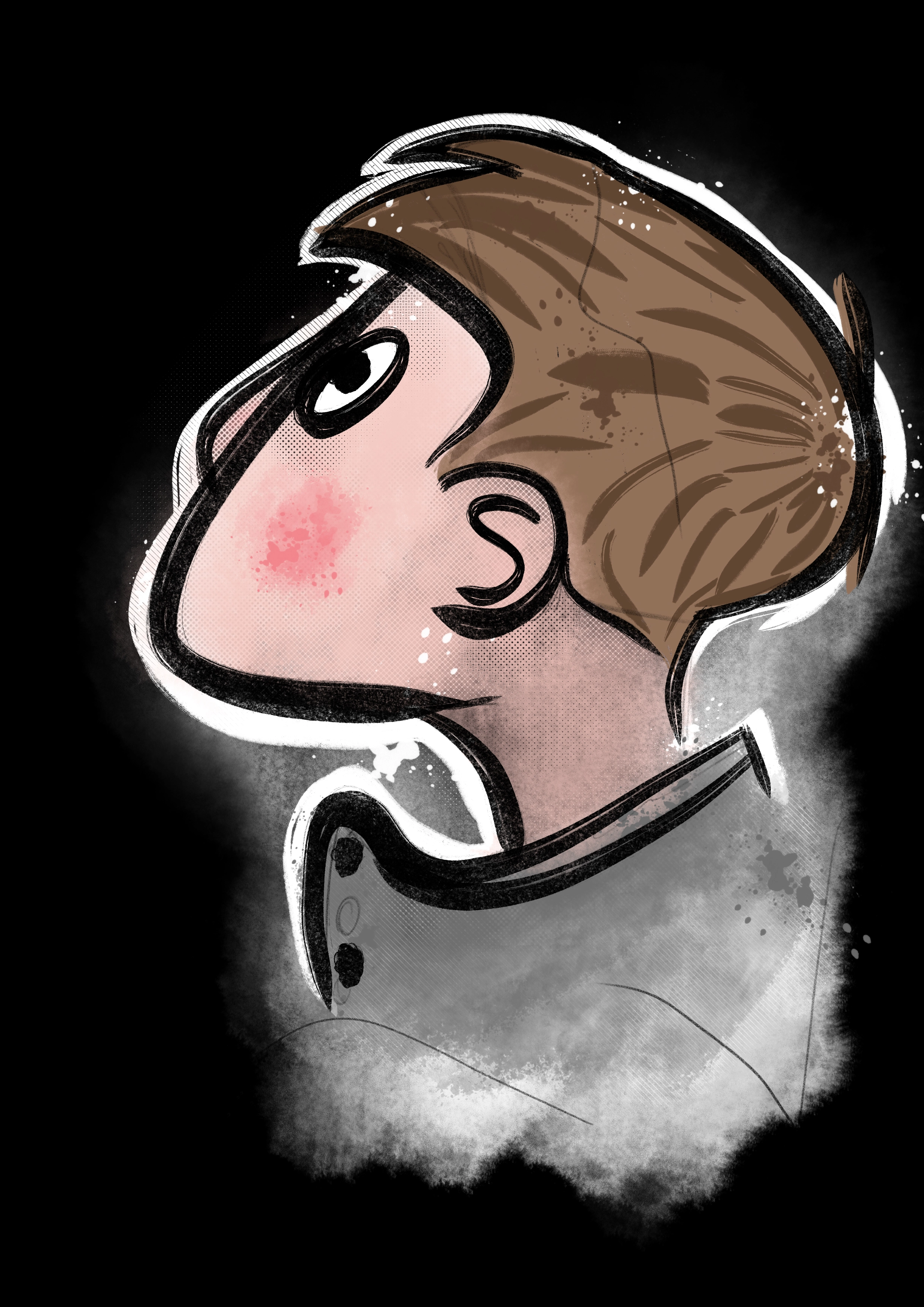Bonus Panels:

English is bent to our will in daily life and yet people act like God wrote the law on how to speak English and we’re all committing sins of biblical proportions.
No. You know what ? “Me and Mark” is perfectly okay because you understood exactly what the sentence meant. That’s the purpose of language.
It’s about respect for the reader or listener. Using correct language eases the burden of deciphering what you are trying to say by using consistent forms. Otherwise it take extra effort for them to unscramble your words and figure out your meaning.
And yes, of course someone can figure out that when you say “me and Mike” you almost certainly mean to say “Mike and I”. But you’re making it harder for them by not bothering to learn or use the correct form.
I think it depends on if you’re correcting people to better understand them, or correcting them to be correct. Or, to put it another way:
Me and Mike is not any harder to understand than Mike and I. It is harder for the speaker to always make sure they’re using the correct form, though. The extra effort for the speaker must also be considered. Sure, if you’re writing a book you should probably try to use the correct form, but in casual conversation it does not matter, and is more effort than it’s worth (at least in this case)
Mark and I hate you
So do me and Mark
Several counter-points:
- There is an unnecessary space before your question mark.
- Ideally, you should use single quotes when distinguishing words or phrases within the text
- The phrase ‘and yet’ is redundant. Simply “yet” would have been more appropriate.
I believe if you check closely, this rebuttal is ironclad.
Your rebuttal has no iron or steel covering any spots, thus it cannot be considered ironclad
It is also not a rebuttal. It criticizes the grammar and punctuation, but does not offer a counter argument.
Now I want to see a party of all pedants where everyone enjoys correcting others. Finally, that phrase won’t be sarcastic!
Party of pendants. Huh…
He’s the model of a major grammarian.
Come have a seat at my D&D table…
rolls dice threateningly
I want to party with Dan!
.
Seeing as there is very clear paternal symbolism throughout, and even internal dialog of the minster referring to the “doctor” as his father, I think it’s pretty reasonable to assume the minster took the same surname.
I read that as minister and not monster and was very confused. I thought I must have missed a reference to a different movie.
Ah, I made the same mistake!
I suspect it was when he wrote “minister” that led me to read it as “minister”, but it really could have been anything. I’m kind of tired, so that might have been it.
There’s no way the monster would take Frankenstein’s surname. He hated him.
Many people hate their fathers and still keep their surnames.
Knowledge is knowing that the monster isn’t Frankenstein.
Wisdom is knowing that the monster is Frankenstein.
Intelligence is knowing that Scooby Doo taught us that the real monsters are the humans.
Intelligence is knowing that haircut is fucking terrible.
Since red guy is totally not a monster, it makes much more sense to compare them to the creator than to the monster. And since this is a comic, the words are written and therefore read/ seen or – in universe – watched.
No, Red killed and ate his wife.
Guess I suck at reading between the lines…
honestly, the fault is on you, everyone else (literally everyone) noticed it but you
I never know what anyone is talking about.
But his hair looks like the stereotypical description of Frankenstein’s monster, not Dr. Frankenstein who as far as I am aware doesn’t have a stereotyped hair style
That said, my favorite pedantic response would be: Dr. Frankenstein was the monster. And his child should share his last name anyways.
Frankenstein didn’t have a doctorate, and the monster murdered people in cold blood. I suppose you could argue that Victor was also a monster (particularly for allowing Justine to die when he could have saved her if he’d spoken up and taken responsibility for his actions) but the monster was definitely a monster, albeit a sympathetic one.










